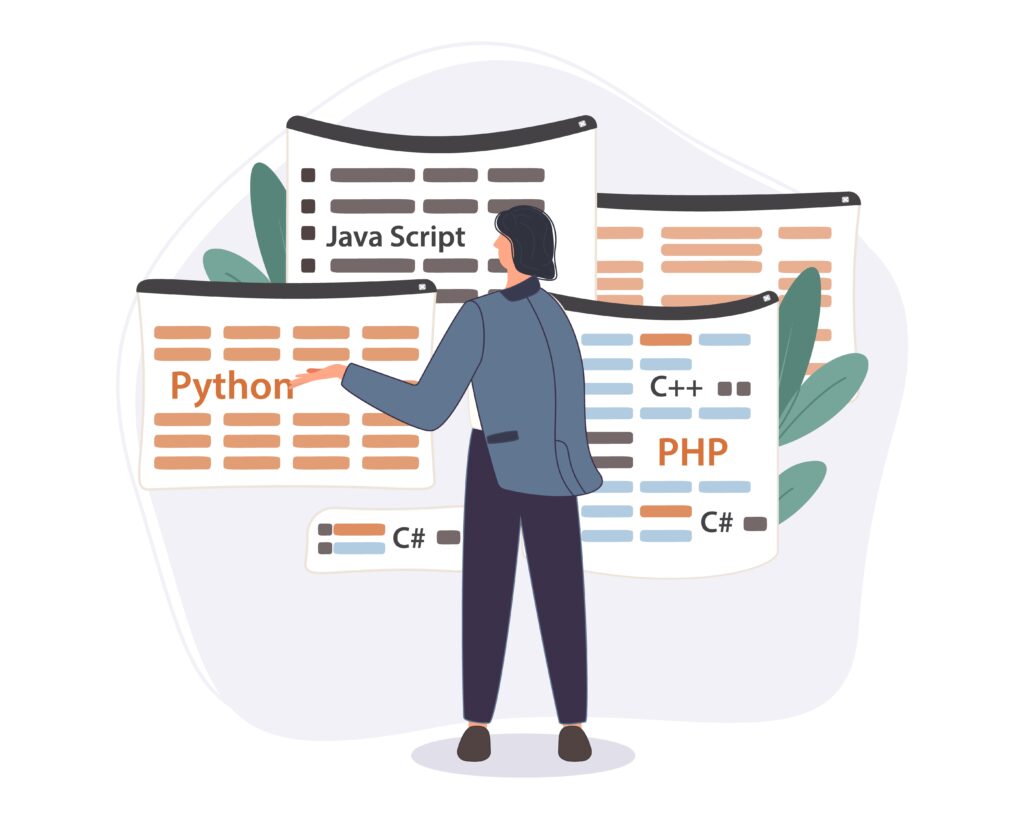
In the realm of programming language improvement and robotization, two terms that frequently come up are “coding” and “scripting.” If you’re new to programming languages or have been hearing these terms but aren’t exactly certain what they mean, you’re perfectly positioned. In this article, we’ll dig into coding vs. scripting as opposed to prearranging qualifications, offering guides to assist you with pursuing informed choices for your ventures.
What is coding?
Coding, or programming language, is when you use a fancy language to make a bunch of instructions. These instructions help build complicated software or apps. It’s a methodical way of making software. Coders write code that can be compiled into an executable program. Coders write code that can be compiled into an executable program.
Example of Coding: Imagine you’re building a video game from scratch using a language like C++ or Java. You’d write code for rendering graphics, handling user input, and managing game logic. The result is a standalone game that users can install and run.
What is scripting?
Scripting is different. It’s about writing scripts that do tasks automatically or handle specific jobs in a big application or system. These scripts are usually written in languages like Python, JavaScript, or Ruby. Unlike coding, scripts are often interpreted rather than compiled.
Example of Scripting: Let’s say you want to automate the process of renaming a batch of files. You could write a Python script that iterates through the files in a folder and renames them according to specific rules. This script doesn’t create a standalone application but is a tool to perform a particular task.
Coding vs. Scripting: Which One to Choose?
Now that we understand the basic definitions, let’s explore when to use coding and when to use scripting:
- Project Complexity: If your project is large and complex, involving the creation of a standalone application or software, coding is usually the way to go. Coding provides the structure and scalability needed for intricate projects.
- Task Automation: When you need to automate repetitive tasks, scripting is your friend. It’s efficient for automating tasks like data processing, file manipulation, or web scraping.
- Speed of Development: Scripting languages often have shorter development cycles compared to coding. If you need quick results, scripting may be the better choice.
- Resource Consumption: Coding typically consumes more system resources because it results in standalone executables. Scripting consumes fewer resources as scripts are interpreted by an existing environment.
- Flexibility: Coding offers more control and flexibility for building complex applications. Scripting is ideal for tasks that require quick, adaptable solutions.
In summary, coding and scripting are both valuable tools in the world of software development. The choice between them depends on the nature of your project. If you’re building a large, complex application, coding is the way forward. However, if you need to automate tasks or create quick, versatile solutions, scripting is the right choice.
Understanding the differences between coding and scripting (coding vs. scripting) empowers you to make informed decisions when embarking on your next software development or automation project. Whether you’re writing code or scripting solutions, both are crucial skills in the ever-evolving tech landscape. If you have any doubts, contact us.



Your point of view caught my eye and was very interesting. Thanks. I have a question for you.
Please ask!
Thank you for your sharing. I am worried that I lack creative ideas. It is your article that makes me full of hope. Thank you. But, I have a question, can you help me?
Thanks for your valuable feedback. Be informed, be empowered !!
Please ask your doubt, i will be happy to resolve.